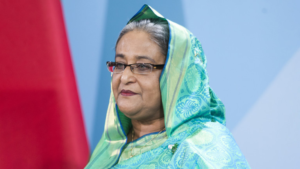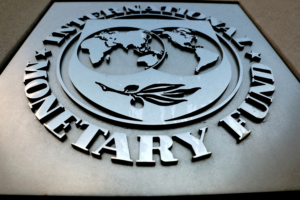Strengthening Bangladesh-China Defense Cooperation: Insights from Foreign Affairs Adviser Md Touhid Hossain

Importance of Defence Cooperation
Defence cooperation between Bangladesh and China plays a pivotal role in shaping the security landscape of South Asia. Historically, the military relationship between the two nations has evolved through various phases, with each era marked by significant exchanges of training, equipment, and strategic dialogue. This collaboration not only fortifies Bangladesh’s military capabilities but also aligns with China’s broader interests in establishing strategic partnerships across the region.
Chinese military training programs and the supply of advanced equipment have been instrumental in enhancing the operational readiness of the Bangladesh Armed Forces. These initiatives have provided personnel with practical skills and fostered an understanding of modern warfare techniques essential for maintaining regional security. As a result, Bangladesh has addressed its defense needs better while harnessing China’s expertise in military advancements.
Foreign Affairs Adviser Md Touhid Hossain’s statements underline the necessity for intensified collaboration in modernizing military services. He emphasizes that a robust partnership is crucial for adapting to evolving security challenges, which include rising tensions and regional instability. The assurance of a reliable defense partnership with China allows Bangladesh to pursue a more proactive security posture, addressing the threats faced by the nation without compromising its sovereignty.
Moreover, this strategic cooperation is not limited to military hardware and training but extends to intelligence-sharing and joint exercises, strengthening operational efficacy. With the continuous shifts in geopolitical dynamics, the partnership between Bangladesh and China is a testament to the importance of defense collaboration in ensuring regional stability and security. This relationship is vital for both nations as they navigate their respective security environments while promoting peace and cooperation on a broader scale.
Enhancing UN Peacekeeping Capabilities
Bangladesh and China’s collaboration has significantly enhanced Bangladesh’s UN peacekeeping capabilities, an area of increasing importance given the evolving global security landscape. Training and exchange programs facilitated by China have provided Bangladeshi peacekeepers with advanced skills and knowledge, leading to considerable improvements in operational effectiveness. Over the years, the specialized training modules developed by Chinese military experts have focused on several aspects critical to effective peacekeeping, including tactical operations, conflict resolution, and humanitarian assistance.
One of the notable outcomes of this collaboration has been the deployment of Bangladeshi troops into various high-stress environments where they have successfully implemented international peacekeeping mandates. The training received has not only equipped them with the necessary combat skills. Still, it has also fostered a deeper understanding of the intricacies involved in peacekeeping missions, such as engaging with local communities and conducting joint operations with personnel from other countries. Such competencies are essential for balancing military objectives with humanitarian needs during missions.
Furthermore, the enhanced capabilities resulting from this partnership have positively influenced Bangladesh’s standing on the international stage. As a consistent contributor to UN peacekeeping missions, Bangladesh’s improved operational readiness signals a commitment to uphold global peace and security. The recognition from the United Nations for its practical contributions bolsters its reputation and opens avenues for deeper cooperation with other nations interested in peacekeeping efforts.
The implications of these developments extend beyond immediate operational gains. By cultivating a robust relationship with China and benefitting from its expertise, Bangladesh fortifies its defense mechanisms and strategically aligns itself within the broader context of international diplomacy and peacekeeping. This evolution in capabilities highlights the significance of bilateral cooperation in enhancing national defense while contributing to collective security efforts worldwide.
The Rohingya Crisis and China’s Role
The Rohingya crisis represents one of the most pressing humanitarian challenges in Southeast Asia, primarily affecting Bangladesh, where hundreds of thousands of Rohingya Muslims have sought refuge from persecution in Myanmar. The situation deteriorated dramatically in 2017 following a military crackdown in Rakhine State, resulting in a mass exodus of Rohingyas fleeing to Bangladesh. Presently, it is estimated that over 1.1 million Rohingya refugees are residing in sprawling camps in Cox’s Bazar, enduring inadequate living conditions and limited access to education and health services.
Bangladesh has consistently sought international support to address this crisis and has turned to China, a critical regional power with significant leverage over Myanmar. China’s historical ties with Myanmar, stemming from economic investments and infrastructure projects, position it uniquely to engage in diplomatic negotiations that could facilitate the repatriation of the Rohingya. Md Touhid Hossain has emphasized the importance of leveraging China’s influence to address the humanitarian needs of the Rohingya population and to encourage Myanmar to create conducive conditions for their return.
China’s active involvement in resolving the Rohingya crisis could yield substantial benefits for regional stability. However, several challenges must also be navigated. For instance, China’s primary interest in Myanmar often revolves around economic investments and geopolitical objectives, which may not align with humanitarian priorities. Furthermore, there is a risk that China’s involvement could be perceived as an attempt to expand its influence at the expense of local sovereignty and human rights considerations.
Nevertheless, should China decide to take a proactive stance, numerous opportunities exist for collaboration among Bangladesh, Myanmar, and China. Developing a logical framework that prioritizes dialogue, humanitarian assistance, and infrastructural support could ultimately contribute to a sustainable resolution to this complex crisis, benefitting all stakeholders involved.
Future Trajectory of Bangladesh-China Relations
The future of Bangladesh-China relations holds significant promise, driven by various factors that will influence this partnership. According to Md Touhid Hossain, Bangladesh’s Foreign Affairs Adviser, the evolution of this bilateral relationship hinges on the stability of Bangladesh’s political landscape. A stable governance structure fosters an environment conducive to enhanced diplomatic dialogue, economic investments, and military cooperation between the two nations. Political resilience in Bangladesh can serve as a foundation for deeper defense cooperation, enabling joint military exercises and training programs and sharing intelligence that would solidify their defense capabilities.
Regional dynamics also play a pivotal role in shaping the future interactions between Bangladesh and China. The geopolitical landscape in South Asia is experiencing transformations due to multiple players vying for influence. Bangladesh’s strategic position becomes increasingly scrutinized as countries navigate these changing relations. Cooperation with China may be viewed as a counterbalance to external pressures, highlighting a preference for multilateralism and diversified partnerships. This evolving context is crucial, and both nations must adeptly navigate these dynamics to harness mutual benefits.
Global political changes are another essential element that will affect the trajectory of Bangladesh-China relations. The rise of new global power dynamics, trade agreements, and international security frameworks can augment or hinder collaborative efforts. Expert insights from recent seminars indicate that China’s Belt and Road Initiative will play a vital role in further cementing economic ties, promoting infrastructure development, and enhancing trade flows. As these factors continue to unfold, a comprehensive view suggests that both countries are inclined to deepen their defense and economic cooperation, paving the way for sustained growth in their diplomatic relations.








